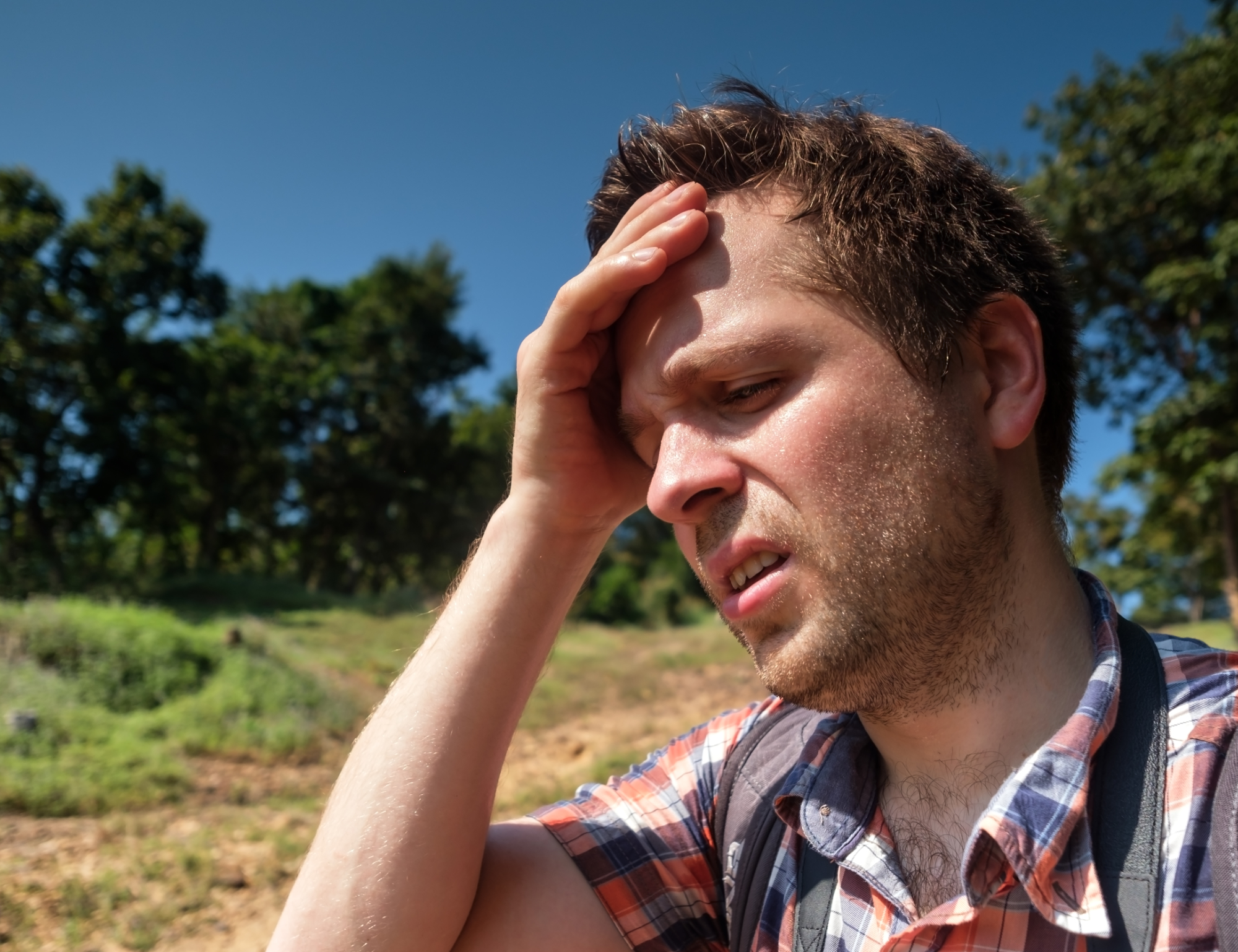
It’s summertime, and we don’t need to tell you that it’s been a very hot one. While bright weather can cheer some of us up, for others, the summer months are just as hard, or harder, than winter. A less common form of Seasonal Affective Disorder can make it even more challenging.
Read on for some helpful guidance on how to make sure Mr. Blue Sky doesn’t turn into Mr. Blue.
Check Your Meds to Keep Your Cool
Some SNRIs, antipsychotics, and tricyclic antidepressants, can interfere with your brain’s ability to control body heat. You might sweat more or less than needed, find it difficult to handle being hot, or the heat might make it hard to think straight.
To be on the safe side, check your medication leaflets or have a chat with your pharmacist about any psychiatric prescriptions you’re taking.
Watch Out for Heatstroke
The heat can make us unwell. Check out this NHS guidance about heatstroke and heat exhaustion.
There are some signs to look out for on summer days that can mean we are getting unwell: nausea, thirst, dizziness, tiredness, headache, heavy sweating, high temperature, clammy skin, rapid breathing, fast heartbeat, and cramps. Children might get grumpy, and older people can experience delirium.
The symptoms of heatstroke might be mistaken for anxiety, so don’t get caught out. Go indoors or into the shade, try to cool yourself down, and drink plenty of fluids. If you’re still feeling unwell after half an hour, it might be heatstroke, so get medical attention by calling 111, visiting a pharmacy, or, if possible, seeing your GP. If you feel at risk of serious ill health, ring 999.
Prevention is better than a cure, so to avoid getting ill, drink cool fluids, try to stay out of the sun when it’s hottest (usually between 11 a.m. and 3 p.m.), wear light clothing, and don’t overdo exercise. It’s best to steer clear of alcoholic drinks, as they can make your body lose water.
Try Not to Stress About Body Image
Summer can be tough if we’re uncomfortable with the way we look. Maybe we think we weigh too much or too little, or that summer clothing will reveal self-harm scars, or perhaps body dysmorphic disorder is causing distress.
Whatever the cause of our worry, we should treat ourselves kindly. We might start by giving ourselves permission to wear what feels comfortable and safe, rather than what we think we should wear.
Maybe we can experiment with gently turning our thoughts towards what makes summer pleasant: the warmth of the sun, listening to music in the park, taking a walk or feeling a cool breeze against our skin.
And if social media is creating unhappy thoughts through its constant stream of unrealistic, enhanced images of make-believe lives, give yourself a break from its high-tech fiction. Put the phone away, and take in the world around you.
How to Beat the Heat and Get Some Sleep
As it gets dark, our bodies release a “sleep hormone” called melatonin. This tells our brains that it’s time to rest. In the summer, longer daylight hours and hot temperatures can interfere with this natural process, making it harder for us to sleep.
If you’re finding yourself awake on warm nights, you can try keeping your room cool by opening a window, using a fan, or using lighter bedding. Some people find eye masks helpful as they block out early morning sunlight. Try to stay hydrated by drinking water regularly during the day.
When it’s too hot to sleep, try placing an ice pack in your pillowcase for a few minutes before bed, taking a cool shower, or soaking a small towel in cold water to rest on your forehead or chest.
How to Manage Your Summertime Mood
It’s all too easy to get dehydrated in the summer, and this can have a big impact on our mood if we’re facing mental health challenges. You might try keeping cold water handy by carrying a flask or even one of those motivational bottles with times on the side.
Getting out and about for a short walk (but not in the hottest hours) can help boost our mood. Why not combine it with a bit of outdoor meditation or meeting friends in a shady spot? For those of us who find walking or going outside challenging, there are online wellbeing and recovery groups you might want to join.
If you’re living with a health condition that limits your exercise options, take a look at Move More with Bands. It’s a 12-page guide to using resistance bands designed with beginners in mind. The low-impact routine can be performed in a seated position and has mood-improving and health benefits.
If you need support for your mental health, call Mindline Somerset any time of the day or night, seven days a week, locally on 01823 276892 or freephone 0800 138 1692.
Stay Well for Summer
To help address the mental health needs the hotter months can bring, we’ve updated our Wellbeing Kit with tips and resources from across the OMH alliance.
You’ll find helpful advice designed to address seasonal pressures. This includes tips for managing anxiety around social events, resources for families and young people, guidance on maintaining healthy routines, and suggestions to help you get better sleep during warmer nights.
Whether you’re looking for a small boost or more in-depth support, we invite you to explore the full Stay Well for Summer kit on our website.